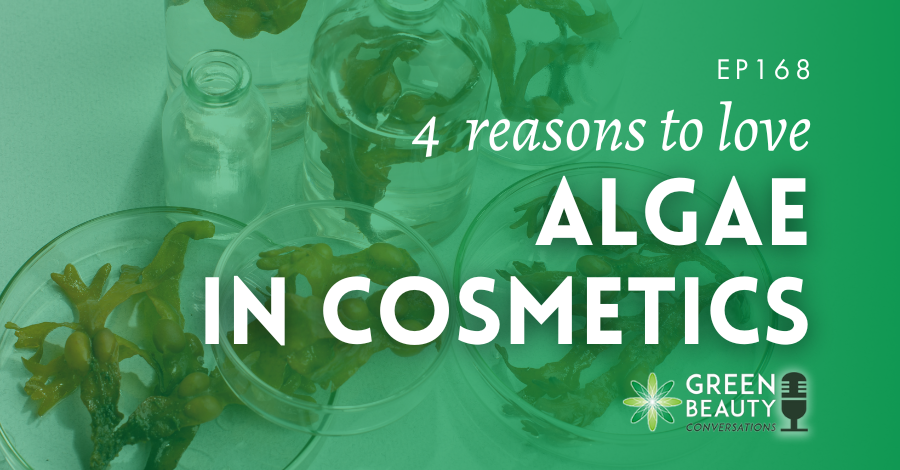The quest for sustainability in a world grappling with climate change and environmental degradation has led to innovative explorations into green alternatives. One such promising resource is algae, often overlooked but brimming with potential. Algae, which comes in myriad forms—ranging from microalgae to giant kelp—offers a sustainable alternative in various sectors, particularly in food, cosmetics, and biofuel. Dive into this verdant ocean as we explore how algae serves as a beacon of sustainability, transforming industries and creating a greener future.
Picture the vast expanse of the ocean, home to a plethora of species that undergo photosynthesis more efficiently than land plants. The vivacious green of algae signals its ability to capture carbon dioxide, thereby playing a crucial role in mitigating climate change. With the world’s population expected to reach nearly ten billion by 2050, the pressure on food production and resources will necessitate sustainable solutions. Cultivating algae requires significantly less land and freshwater than traditional crops, making it a veritable champion of resource efficiency.
In terms of nutrition, algae are an unrivaled source of vital nutrients. Spirulina and chlorella, two of the most well-known microalgae, are packed with proteins, vitamins, and antioxidants. Spirulina, often hailed as a superfood, boasts nearly 60% protein content, along with an array of vitamins B1, B2, B3, and iron. Ingesting these microalgae can bolster your immune system, enhance energy levels, and support overall health. As consumers continuously lean toward plant-based diets, incorporating algae into meals opens a gateway to increased sustainability without compromising nutrition.
But the journey doesn’t end here. Algae are making waves beyond the kitchen—into the realm of skincare and cosmetics. The beauty industry is progressively turning towards natural, sustainable ingredients, and algae fits perfectly into this paradigm. Rich in antioxidants and vitamins, algae can actively combat the signs of aging and environmental stressors on the skin. Seaweed extracts, generated from various types of algae, are finding their way into creams, serums, and masks, offering rejuvenating properties that hydrate and nourish the skin. This shift not only enhances beauty regimens but also reduces the carbon footprint associated with synthetic cosmetic ingredients.
The manufacturing of cosmetics can be a resource-intensive endeavor. However, by leveraging algae, brands can diminish their reliance on petrochemicals. Algal oil is emerging as a viable alternative to conventional oils derived from fossil fuels, heralding a transformation in ingredient sourcing. Brands that adopt these practices not only appeal to eco-conscious consumers but also contribute to a circular economy that emphasizes recycling and sustainability.
As we traverse beyond beauty and nutrition, it’s essential to note the eco-friendliness of algae in energy production. Traditional biofuels derived from crops like corn or soy require extensive land and freshwater. In contrast, algae can thrive in less-than-ideal conditions—think wastewater and saltwater—without diverting resources from food production. The potential to create biofuels from algae could significantly reduce greenhouse gas emissions and reliance on fossil fuels. Each gallon of algal biofuel represents a step towards energy independence and sustainability.
The variable types of algae offer diverse applications, rendering them suitable for a plethora of industrial needs. Some species harness high lipid content, perfect for biofuel production; others offer complex carbohydrates that could replace starches in food products. Furthermore, advancements in biotechnology enable scientists to genetically modify algae, creating strains that produce higher yields or specific beneficial compounds. This innovative edge not only enhances productivity but also promotes economic viability across different sectors.
Community engagement plays a pivotal role in the transition toward an algae-centric future. Educational initiatives promoting awareness of algae’s benefits can incentivize local farmers and entrepreneurs to explore algae cultivation. Establishing partnerships between researchers and communities can foster innovation, encouraging the development of local supply chains that leverage these sustainable resources. Governments can also contribute through policies that support algae research and infrastructure development, ensuring that these pathways to sustainability are accessible to all.
Moreover, the culinary world is beginning to recognize the culinary potential of algae. Chefs and food innovators are integrating algae into dishes—from algal-infused pasta to algae-based snacks, the gastronomic possibilities are boundless. This culinary adaptability not only promotes a healthy lifestyle but also infuses a new level of creativity into sustainable dining practices.
Nevertheless, the journey towards integrating algae as a sustainable alternative is not without challenges. Misconceptions about taste, texture, and accessibility could prove hurdles that need addressing. Public perception and education become paramount, as understanding the myriad benefits of algae can encourage consumers to integrate it into their diets and lifestyles.
In conclusion, the green future ushered in by algae presents an exciting panorama of possibilities. As we navigate through pressing environmental challenges, embracing algae as a sustainable alternative unlocks innovative solutions across various sectors. Whether it’s enhancing nutrition, revolutionizing cosmetics, or propelling the energy sector towards sustainability, algae represents not just an alternative but a transformative force. By rallying behind this oceanic resource, we pave the way for a greener, healthier world—one algae bloom at a time.
